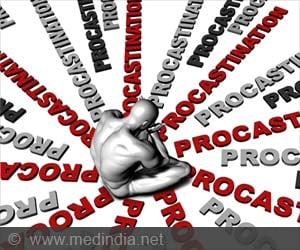The portly assistant school principal pushes aside his paperwork and from his old leather satchel draws a Chinese pistol, his protection here in the violent Thai south. Such is the state of Thai.
The portly assistant school principal pushes aside his paperwork and from his old leather satchel draws a Chinese pistol, his protection here in the violent Thai south. Such is the state of Thai.
"The children don't know I carry a gun," says Prachin Ruengchim, as the laughter of young students carries down from the upstairs classroom. "Almost nobody knows, only close friends. Some other teachers don't know."The 59-year-old reveals that he always carries the firearm around the state school, hidden in his bag, and on his motorcycle journeys here in the Mueang district of Narathiwat province, because "it makes me feel safe".
"If I have a gun, if someone came to attack me at least I could fight back, or I could give a sign with a gunshot so authorities can rush to the scene," he says.
Prachin says it is now normal for civilians to arm themselves in the mainly Muslim region bordering Malaysia, where around 60,000 troops are stationed after five years of brutal insurgent violence.
Almost 3,900 people, both Buddhists and Muslims, have been killed since the unrest began in January 2004, led by shadowy Islamic insurgents who never claim responsibility for the attacks, often shootings.
On one particularly bloody day in early September, eleven people were shot dead in a spate of killings across the region, a former Malay sultanate that was annexed by Thailand in 1902, a source of the current tensions.
Advertisement
A report by the organization in May said around 100 applications for firearms licenses were submitted each day in Narathiwat province alone, serving as justification for authorities to ease gun regulations.
Advertisement
Prachin, a Muslim convert since he married seven years ago, said it was "not difficult" for teachers or other state employees of either religion to get a gun license, as they are often specific targets of the militants' violence.
But across the rest of the population, experts say the state is almost exclusively arming the region's minority Buddhists, as well as giving them military training, to defend themselves against insurgents.
"There's a sense that they have to protect the motherland," said Fred Lubang of Nonviolence International, at a recent seminar in Bangkok on the possibility of arms reduction in the south.
While armed Malay Muslims risk being suspected of insurgent activity, he said that getting hold of weapons was easy for Buddhists, who feel victimized by the "faceless" militants.
A short drive away from Prachin's school, in Tak Bai district, several Buddhist villagers with pump-action shotguns slung over their shoulders are sitting in a bamboo hut by the local shop, surrounded by rubber trees.
State authorities gave the village 23 such firearms and provided training to some of the residents to set up their own volunteer defense team.
"Of course people are scared. When they are inside the village they feel safe enough but they worry when they go out," said village headman Yoon Yoeunchan.
His leadership role often takes him to other parts of the region for meetings, so Yoon, 54, carries his own shiny silver Beretta pistol, which he bought from Bangkok as there are no legal gun shops in the southern provinces.
"I had to get permission from the authorities first. It's easier if you are a village headman," he remarked, as he slipped the weapon back into his pocket.
But he added that it was not hard to buy guns illegally in the south. "If you need one you can find one. It's cheaper than the one I got with a license," he said.
Alongside a "pervasive" black market, graft is commonplace with officials often speeding up the issuing of licenses in return for kickbacks, according to Apisak Sukkasem of the region's Peace Media to End Violence project.
Yet while locals claim they feel safer carrying guns, being armed may make them more attractive targets.
"In most of the killings, the insurgents are very careful not to cause too much damage to the weapons so they can steal them, and ammunition," explained Sunai Phasuk, an analyst for Human Rights Watch in Thailand.
Among the Buddhists, with much better access to firearms, Sunai said some security volunteer units are forming their own vigilante "death squads", which "feel that they are above the law".
"When things go wrong the government doesn't want to punish them," he added.
This climate of impunity and the imbalanced dissemination of arms have fueled resentment among Muslims, who also live in fear of attacks.
"We are the step-children, not the real children of the Thai state, that's my personal opinion," said Abdulromae Dusu, a deputy village head in Narathiwat's Rusoh district.
Source-AFP
ARU








